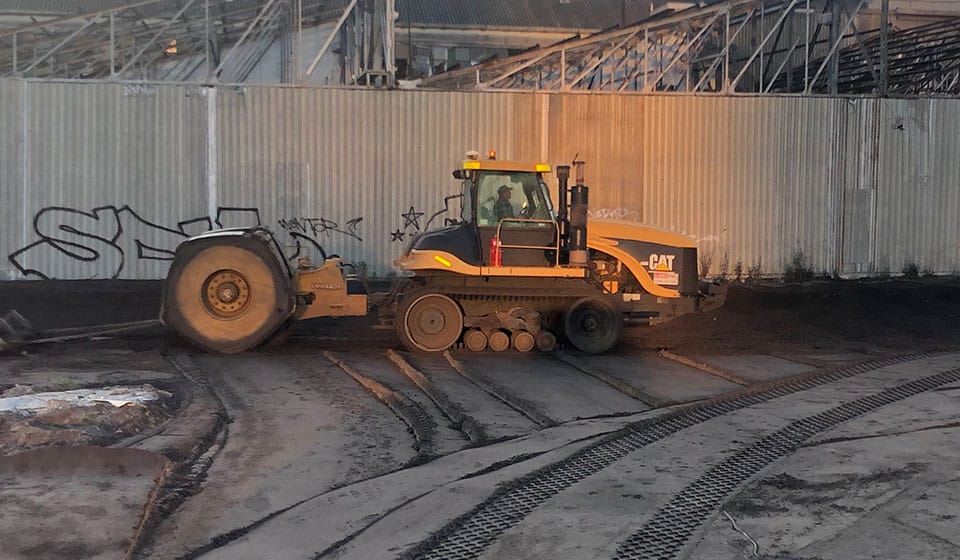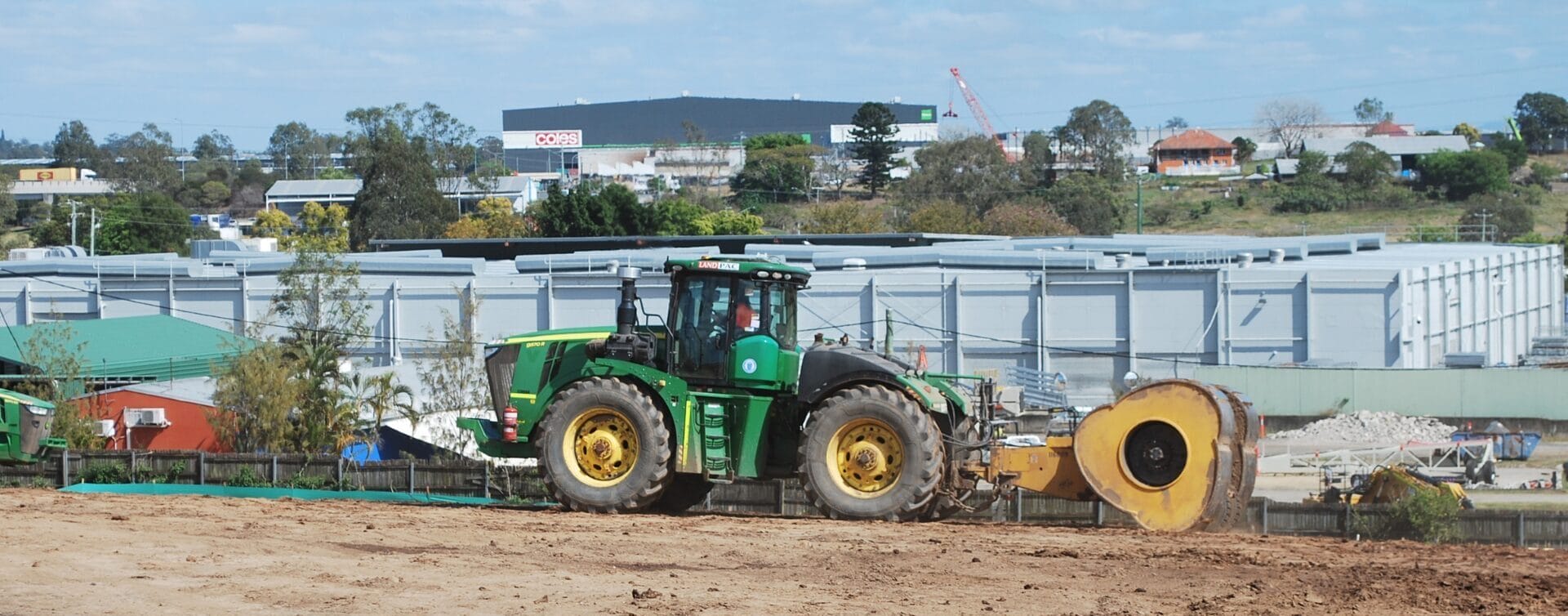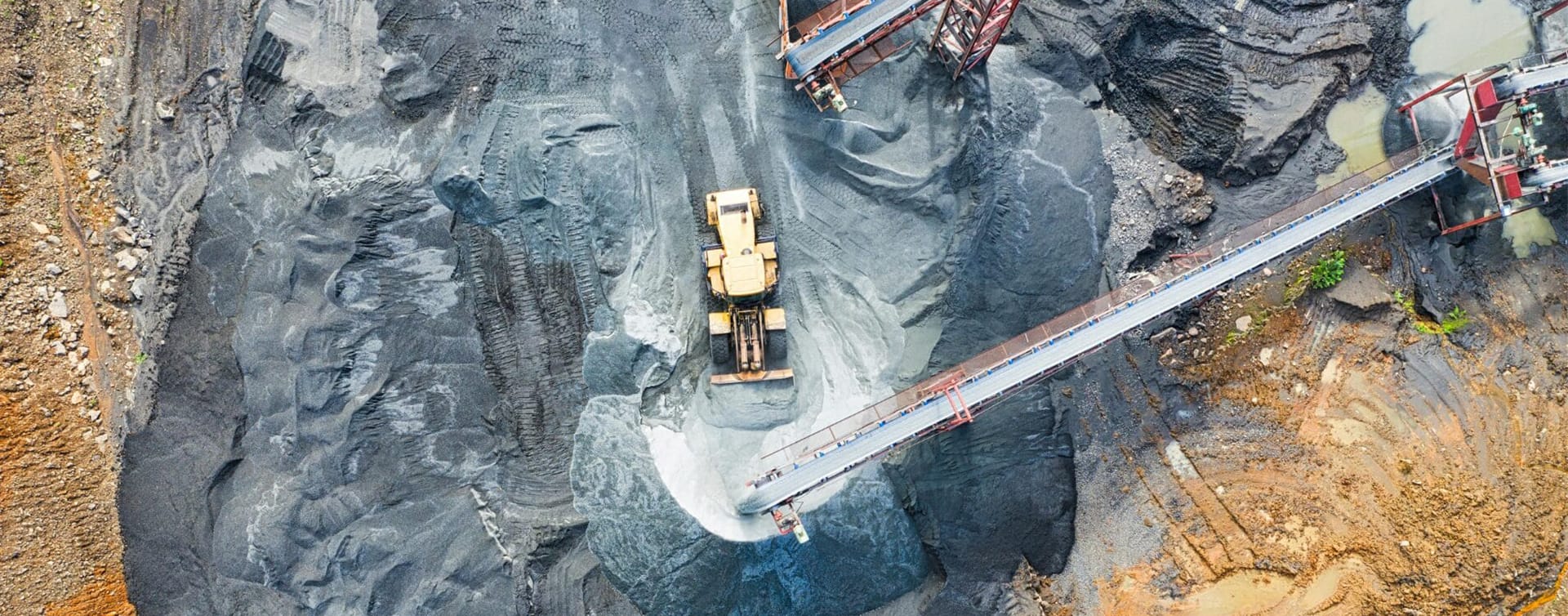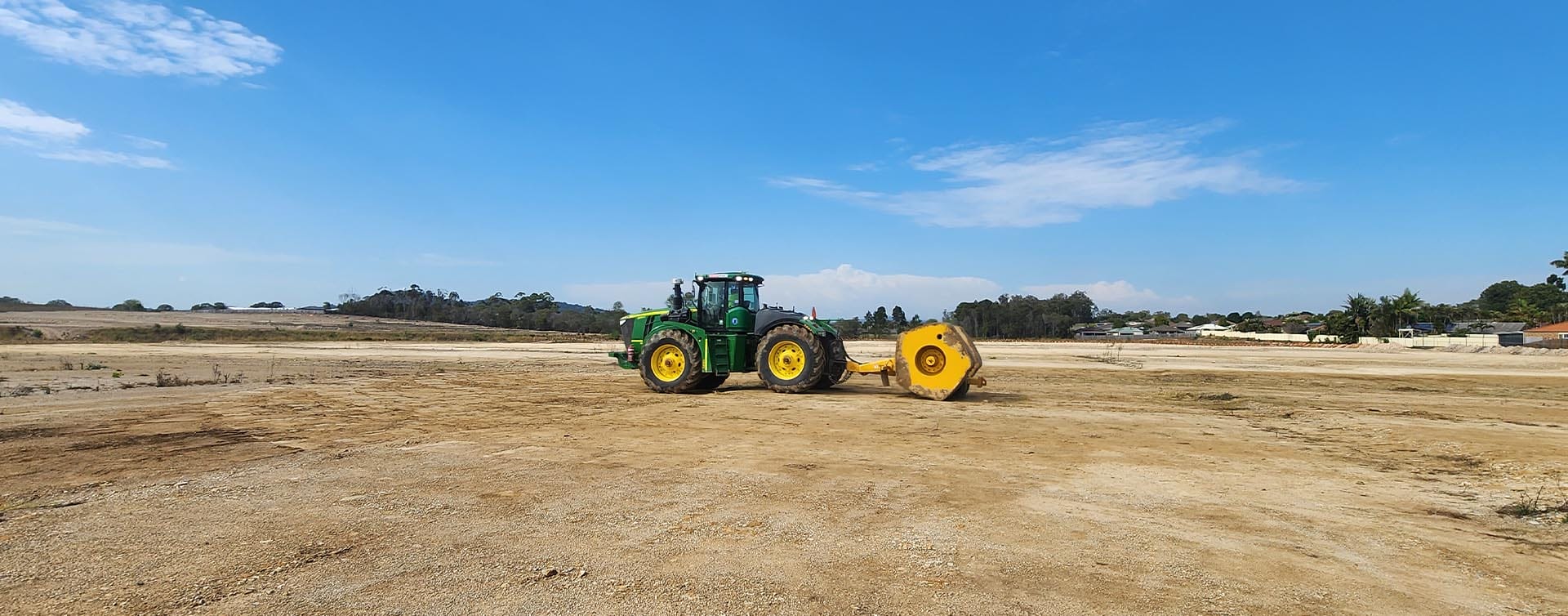Solid foundations through Operational Control
The Importance of Operational Control in Ground Improvement
Every construction project relies on a firm foundation, achievable through meticulously controlled operations. Effective operational control is pivotal for the success of ground improvement projects, where every aspect of the compaction process is thoroughly monitored and managed to maintain consistent energy, optimise soil performance, and enhance the project’s overall quality and longevity.

Why is Operational Control Critical in Ground Improvement?
Operational control is key to the success of ground improvement projects. It involves a systematic approach to overseeing every stage of the compaction process, ensuring uniform and precise results. This control is essential for maintaining optimal compaction energy, enhancing soil performance, and addressing potential challenges that could impact the project’s quality and longevity. It’s a commitment to excellence, aligning every project step with the highest standards of quality and precision.
How is Operational Control Implemented in Ground Improvement?
The approach to operational control in ground improvement extends beyond simply monitoring the compaction process. It involves a deep engagement with each phase, aligning every aspect with the project’s specific goals and requirements. This engagement is tailored to the unique demands of each project, considering factors like soil type and project size. Anticipating and addressing potential issues ensures a smoother, more efficient compaction process. Moreover, maintaining transparent communication and being receptive to feedback fosters trust and integrates client-specific needs into the operation control process.
What Benefits Does Close Monitoring of the Compaction Process Bring to Your Project?
Expert teams meticulously oversee the compaction process, using real-time data and feedback to apply the correct compaction energy uniformly. This precision avoids issues like over- or under-compaction, ensuring optimal soil performance. Such attention to detail in the compaction process is crucial for not only meeting but surpassing project specifications, laying a foundation that endures.
What Tools are Utilised for Effective Operation Control?
Advanced tools, like intelligent compaction measuring systems, are at the heart of effective operation control. These tools provide real-time control and documentation of the compaction process, maintaining consistent energy and uniform soil compaction. This technology ensures each soil layer meets the necessary density and strength criteria, providing a robust foundation for the construction project.
How Does Enhanced Soil Performance Contribute to Project Success?
Maintaining uniform compaction energy significantly boosts soil performance, increasing its load-bearing capacity and stability, which are vital for any construction project. This improved soil performance directly translates to the project’s overall success, enhancing its durability and performance. Operational control in this context is about setting new standards, building projects on foundations that are not just solid but exemplary.
How Does Meticulous Operational Control Improve Project Quality and Longevity?
The impact of meticulous operational control is clear in the superior outcomes of construction projects. Optimising every step of the compaction process improves project quality and contributes to the longevity and durability of the construction, ensuring the investment is safe and valuable for years to come.
In conclusion, a focus on operational control is essential for the success of ground improvement projects. Through rigorous monitoring, the use of advanced technologies, and a commitment to excellence, operational control delivers enhanced soil performance, superior project quality, and longevity. This approach is not just about building structures; it’s about building lasting legacies, ensuring projects are not just successful but also exemplary in quality and durability.
Choosing Landpac for Groundbreaking Excellence in Operational Control
So, why turn to Landpac for your ground improvement needs? With our rigorous approach to operational control, we don’t just meet industry standards – we redefine them. Our meticulous monitoring of the compaction process, coupled with our advanced intelligent compaction measuring system, ensures optimal soil performance. This level of precision and attention to detail translates into enhanced soil stability and load-bearing capacity, integral to the success and durability of any construction project.
By opting for Landpac, you’re choosing a future where your construction projects are not only successful but also exemplary in quality and longevity. Our unwavering dedication to enhancing soil performance goes beyond merely completing a project; it’s about ensuring the safety and value of your investment for years to come.
Landpac stands out in the construction industry as a beacon of support and expertise. Our commitment to your project’s success is steadfast, ensuring that every aspect is meticulously calibrated for excellence. When you partner with Landpac, you gain more than a service provider; you gain a dedicated ally committed to turning your construction visions into reality. Trust Landpac to lay not just the groundwork but a foundation of unmatched excellence for your project.
Latest news

Uncontrolled vs Contaminated Fill | Why It Matters
Understand the difference between uncontrolled and contaminated fill, the risks of each, and how Landpac’s HEIC method delivers safe, stable ground.

High-Energy Impact Compaction in Australian Mining
From haul roads in WA to tailings dams in QLD, High-Energy Impact Compaction (HEIC) is reshaping ground improvement across Australia’s mining operations. Backed by Intelligent Compaction Measurement (ICM), HEIC delivers faster, deeper, and more reliable results, boosting safety, sustainability, and cost-efficiency in some of mining’s toughest conditions.

Understanding High Energy Impact Compaction (HEIC)
High Energy Impact Compaction (HEIC) revolutionises ground improvement with its ability to achieve superior soil density and stability. Unlike traditional methods, HEIC uses advanced rollers and compaction technology to penetrate deeper soil layers.
